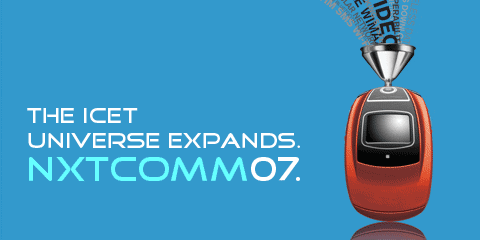|
|

article page | 1 | 2 | 3 |
'master’ solution
design is no longer relevant to the
operating ICT solution, everything – design,
fulfilment, operations – becomes
ad hoc.
Convergence
is making the solutions business
non-scalable
As if this isn’t
painting a bleak enough picture,
the current move towards convergence
is manifestly bringing the ICT solutioning
problem to a head. Until recently,
solutions used to be procured and
supplied in isolated ‘towers’,
where each ‘tower’ would
comprise many individual service
components and products. For instance,
enterprises would outsource their
voice requirements as one ‘tower’,
which would be separate from their
data ‘tower’ requirements.
Alternatively, enterprises would
seek an Internet solution or a storage
solution, or maybe a compute or security
solution; but all of these would
be distinct and separate items both
in terms of procurement and supply.
|
|
As
if this isn’t painting
a bleak enough picture, the current
move towards convergence is manifestly
bringing the ICT solutioning problem
to a head. |
|

Standards
and best practices
to relieve the bottleneck
After
thirty years of status
quo, solution integrators
are readying themselves
for change; a few have
already made their move.
They can see continued
growth in their solutions
business and realise it
is critical to relieve
the impending solutioning
and fulfilment bottleneck
or risk losing market share
to competitors that are
building a more scalable
solutions business. A new
approach is undoubtedly
required, but where do
solutions providers look
for help with things such
as new best practices,
automation and IT support?
|
|
|
|

Now, however, as
these diverse solutions technologically
converge on IP, enterprises are procuring
and being supplied with solutions that
encompass all ‘towers’ in
a single, holistic, end-to-end ICT
solution. Traditional voice solutions
are being replaced with IP based voice
solutions that run over IP data networks.
Storage area networks are now as integral
a part of the IP data centre as the
local area networks, which have long
been based on IP, and in some cases
these are also integrated with the
data network.
Given that a solution
is typically sourced from multiple
providers, integration of service components
is as much a challenge as integration
of operations and management. This
now means that the design and pre-fulfilment
decomposition of solutions, which has
hitherto been accepted as a just bearably
complex manual process challenge, is
set to become a non-scalable business
bottleneck in the very immediate future.
|
|

|
Traditionally, this
has been the province of the standards
bodies and industry best practice
organisations. However, it will come
as little surprise that, with the
historical focus on single-factory
services and products, standards
body membership does not attract
many participants from the solutions
world, consequently reinforcing their
non-solution focus.
There are signs
that this is beginning to change.
In particular, the IT Infrastructure
Library (ITIL) will be releasing
a much anticipated revision to its
IT Service Management (ITSM) framework,
and has a much less followed but
highly instructive framework via
the ICT Infrastructure Management
(ICTIM) book. Indeed, some large
outsourcers have taken to reorganising
the workforce around the best practice
process model to remove the impediment
of tower-based processes. Also, the
..................
|
article
page | 1 |
2 | 3 |
|
|
|




